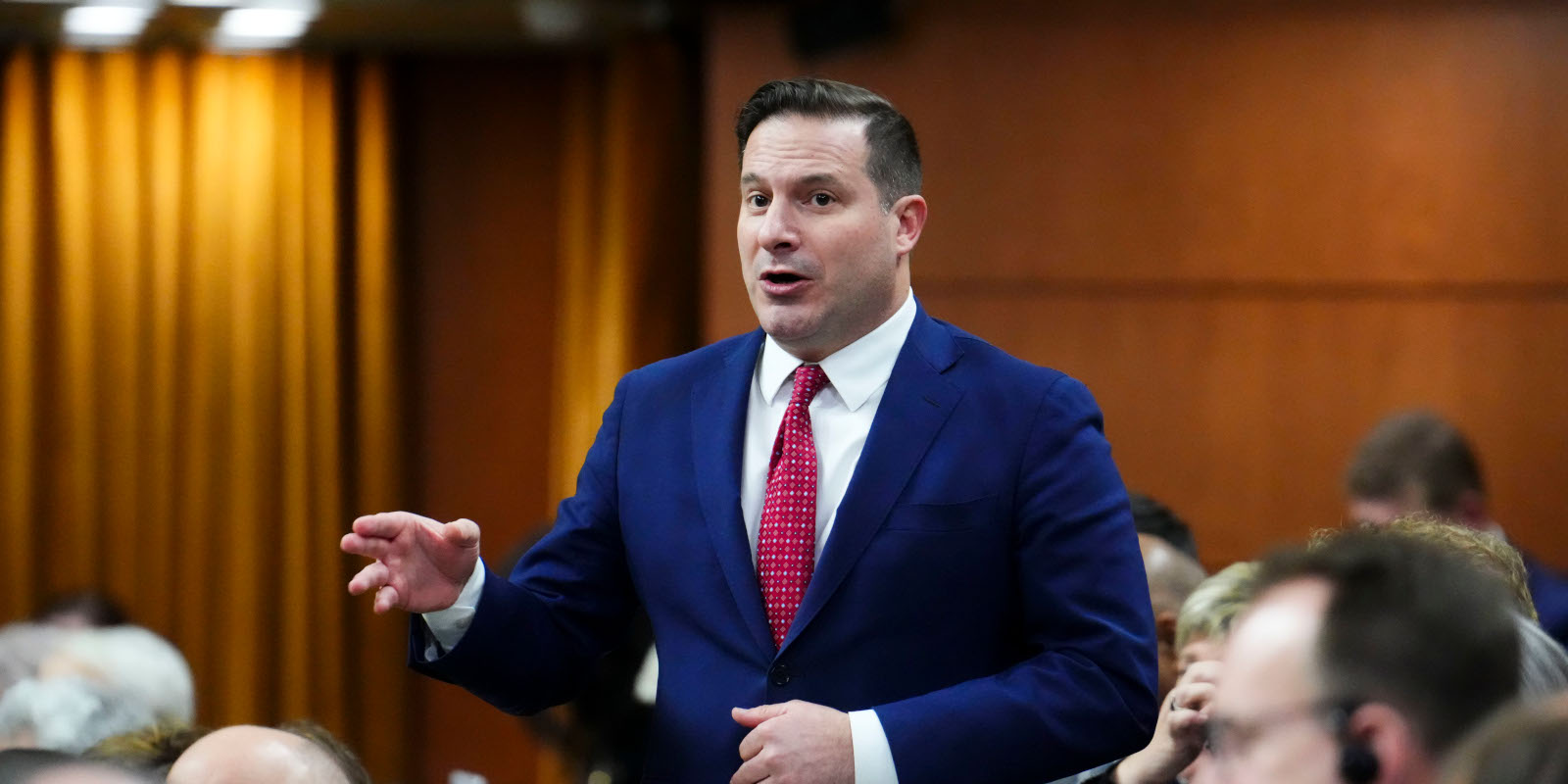Canada’s relationship with China saw major developments last week, beginning with questions surrounding Chinese government access to sensitive Canadian infrastructure, and ending with suspected Chinese surveillance balloons wafting through Canadian airspace.
Last Monday, the Standing Committee on Industry and Technology (INDU) heard from witnesses to learn why a Chinese government-affiliated company was awarded a contract to provide radio communications equipment for the RCMP.
The company in question was Sinclair Technologies, a division of Norsat, itself owned by Hytera, a radio-systems manufacturer partially owned by the Chinese government. Hytera currently faces 21 espionage charges in the United States related to the theft of technological secrets from Motorola.
Witnesses present were representatives of the RCMP, and Minister of Public Safety Marco Mendicino.
The tone of the questions posed to the witnesses split along partisan lines, with Conservative MPs Rick Perkins and Brad Vis hammering Mendicino about why a subsidiary of a Chinese state-owned company charged with espionage in the U.S. was awarded a contract with Canada’s national police agency.
When asked a series of related questions, Mendicino repeated several times that Canada’s national security was never threatened and that the public service and the RCMP follow strict guidelines on awarding contracts to foreign firms.
Sinclair Technologies’ contract with the RCMP was suspended in December after news of the contract’s existence was broken.
Vis asked Mendicino why the contract was suspended when the contract became widely known if there was no security risk in the first place. Mendicino responded by stating the RCMP followed the correct protocols and that it is important to remain vigilant and assess threats to critical infrastructure.
While suspended, the Sinclair contract was not cancelled outright.
When Perkins questioned a representative of the RCMP about the contract, the representative said Sinclair was selected by Public Service and Procurement Canada (PSPC), which could not be reached for comment in time for publication. Perkins then questioned why the RCMP does not have its own process for vetting its contracts.
“Are you not aware of Chinese state national companies that have been charged with espionage in our closest ally?” Perkins asked the RCMP representative, who responded in the negative.
Perkins also asked Mendicino if he was aware of China’s National Intelligence Law, part of which mandated that all Chinese companies must provide access to state intelligence services. Mendicino said he was aware of the law.
Vis and the Conservative INDU members forwarded a motion requesting all papers related to the Sinclair contract be provided to the committee for review.
The motion was adopted in a mostly partisan vote, with four of the five Liberal INDU members voting against it, and seven others from the Conservatives, the Bloc Quebecois, and the NDP, as well as Liberal MP Han Dong, voting in favour.
“We are not satisfied with the responses from Minister Mendicino during the Standing Committee on Industry and Technology meeting Monday afternoon,” said Vis via email. “Neither the Minister nor the RCMP representatives were able to clearly explain why, if there was no breach or security threat with Sinclair Technologies being awarded the contract for radio equipment, did they cancel the contract.”

In an interview with The Hub, Perkins says Mendicino doesn’t seem to understand how Sinclair’s equipment could provide access to information processed through it.
“Where those communications blinks are, that gives intelligence to the Chinese state government as to what the RCMP communication structures are like in the country,” says Perkins.
Minister Mendicino’s office could not be reached for comment, nor could other Liberal members of the INDU committee, including Chair Joël Lightbound.
“What we have here is eight years of a failed system where this government has continued to allow Chinese state-owned enterprises to come into this country and own critical assets,” says Perkins. “Canadian taxpayers are paying to help subsidize the Chinese government to develop intellectual property in artificial intelligence for the Chinese military and it’s a consistent pattern.”
On Thursday, three days after the INDU committee meeting about Sinclair’s contract, Minister of Innovation, Science and Industry François-Philippe Champagne vowed that university research with Chinese military scientists would be restricted going forward.
When asked if he believes the Sinclair affair will lead to tighter scrutiny around contracts awarded to foreign firms, Perkins said he does not expect it.
“Past behaviour dictates future behaviour, so the answer (to) that is absolutely not.”
Recommended for You

Bondi Beach is a warning Canada cannot ignore

Are younger Canadians getting their fair share? It’s time to have a serious talk about the CPP

81 percent of Canadians worried about food costs as inflation on groceries hits two-year high

‘There needs to be new approaches to old ideas’: Why open debate is so important for shaping Israel’s future




